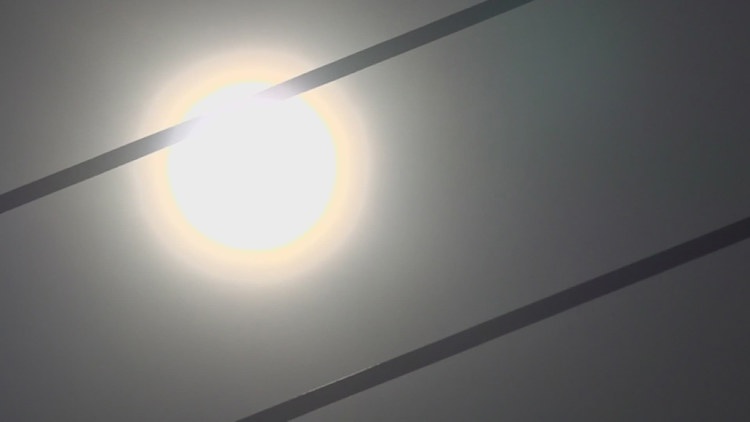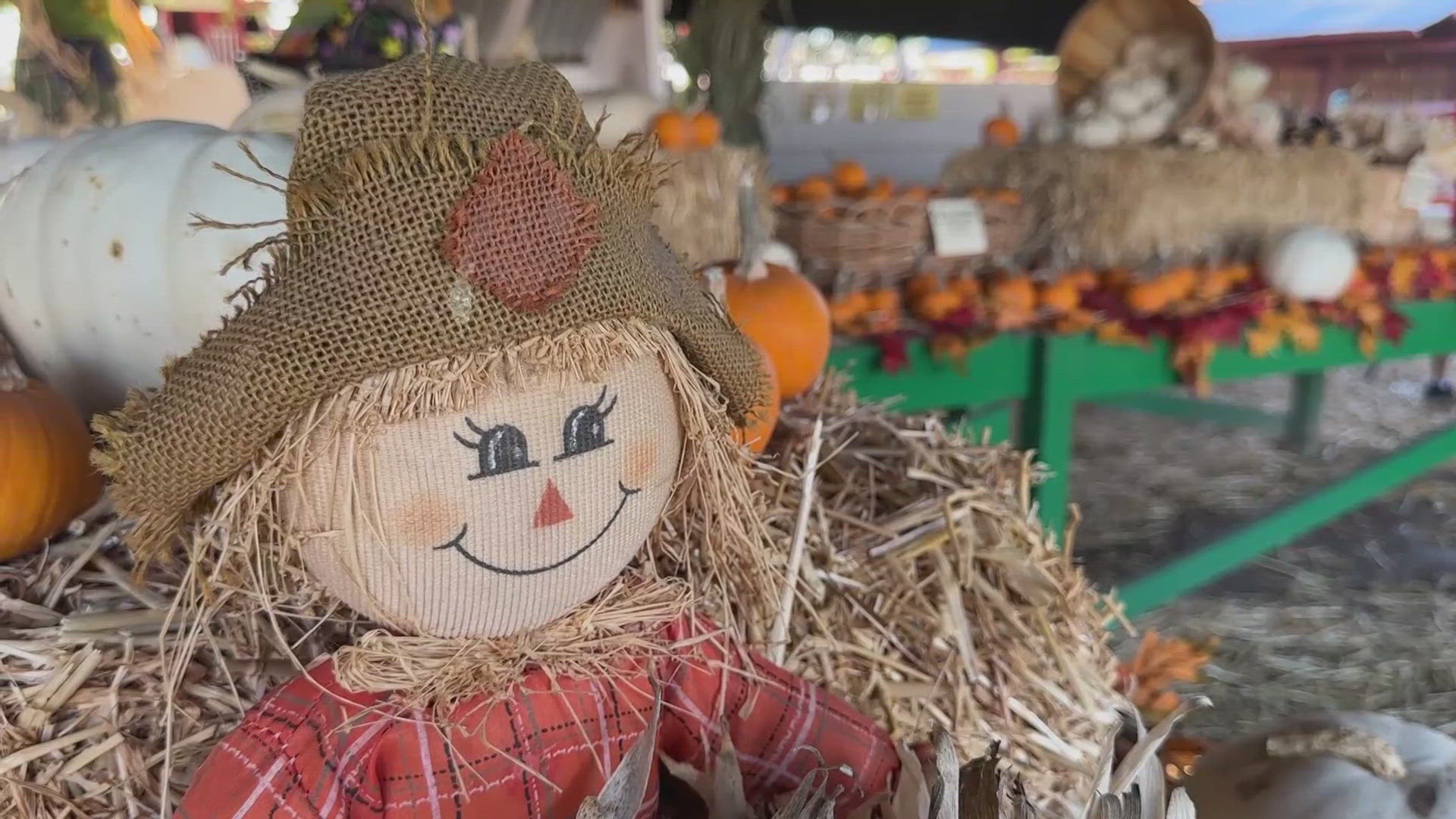PHOENIX — If you've spent any time walking in downtown Phoenix, you know how hot it can feel. Heat radiates from the black asphalt and the tall buildings. There's not a breeze to cool you off and even if there was, it feels more like opening an oven door than a moment of relief.
Experts say it is not just the unrelenting heat and months of triple-digit temperatures that are contributing to heat-related deaths across the Valley – it's how long people spend in the heat without cooling off.
“What studies are finding is that the challenge isn’t really associated with the hottest parts of the day,” Programs Manager of Homelessness Response at St. Vincent de Paul Jennifer Morgan said. “What they’re finding is the constant strain on the body that is associated with not ever having a break or a period of rejuvenation from the heat throughout the summer… people who are unsheltered don’t ever get respite from that.”
In 2023, more than 600 heat-related deaths were reported, according to data from the Maricopa County Public Health Heat Related Deaths dashboard. So far in 2024, there are 256 heat-related deaths confirmed and 393 more under investigation. Of those who died in 2023, nearly half were unhoused. In 2024, 47% of confirmed heat deaths were people experiencing homelessness.
“If you're outside, you don't get to cool,” Physician and Professor at Arizona State University's College of Health Solutions Pope Moseley explained. “If you're homeless, you don't have the ability — you're outside at night, and the urban heat effect for Phoenix is probably 12-15 degrees.”
The reality of just how many unsheltered people who are dying because of extreme heat has touched many people experiencing homelessness in the Valley, Morgan said.
“When you have conversations with people who are part of that community, it's not very common to come across someone that doesn’t know of or have a direct connection with someone who lost their life due to heat-related issues,” Morgan said.
Morgan has seen the challenges people experiencing homelessness in the Valley encounter over the summer. But unlike many people, she's lived them, too.
Morgan was unsheltered herself for a few years throughout the Valley, feeling the unrelenting heat firsthand.
“Through personal experience, being an Arizona native and living in the Valley both being housed and being unsheltered, the heat is inescapable,” Morgan said.
Chemical imbalances occur when someone is dehydrated, including electrolyte and fluid loss, Morgan explained. Those imbalances can lead to muscle cramping and thickening of the blood.
The pain and anxiety people feel when they are dehydrated contributes to the endless cycle – you’re dehydrated, in pain, anxious about how much pain you’re in, and your heart is beating faster – and can lead to a different, lesser-known heat-related killer: cardiac arrest, Moseley explained.
“Normally people don’t die of dehydration, they die of cardiac arrest... Because the blood becomes too difficult to pump in their veins," Morgan said. “It really is just a struggle you can feel on every level."
St. Vincent de Paul handed out over 400,000 water bottles throughout the summer, combatting extreme heat with access to hydration during their 100 Days of Summer campaign. But Morgan said it isn't just access to water. People experiencing homelessness need a break from the heat and time for their bodies to cool down, something people with stable housing can take for granted.
“There’s a real panic associated with once you’re feeling the heat, not being able to gain access to relief,” Morgan said. “If you don’t have access to resources or supports on a pretty immediate basis, you can be in some real trouble, very, very, very fast."
Even though businesses in Arizona are not legally allowed to deny water to anyone, there’s often a “fear and a panic” that people feel about whether or not they will be able to access water during the day, Morgan said.
“Many businesses will not allow people to even enter if they’re not customers,” Morgan said. “They won’t allow them to use the restrooms to maybe run some water across the back of their neck or their faces to cool off, take up space in dining room or have access to beverage stations unless they’re a customer, and a lot of the time people experiencing homelessness don’t have that money.”
Without the ability to be in a shaded area or in air conditioning, people who are unhoused or those without stable housing become susceptible to heat-related illnesses. Some heat-related illnesses, like heat stroke, can happen very quickly, Moseley explained.
"Heat stroke is like a severe infection,” Moseley explained. “You have liver failure, lung failure, kidney failure, mental status changes, loss of blood pressure, loss of ability to clot blood, all of those things happen in severe infections, and it's because of your body's immune response… it kills quickly.”
Moseley said heat stroke has a mortality rate of 20 to 80%, even if a person is able to get to a hospital.
“It’s a pretty devastating illness,” Moseley said.
But Moseley said it's not just heat stroke or heat exhaustion people need to worry about – it’s all illnesses that are impacted by heat. Rates of heart attacks, strokes, kidney failure, respiratory failure, and suicide can all increase as temperature increases, Moseley said.
Moseley explained that the deaths that could be impacted or caused by heat can sometimes slip through the cracks because the data is taking into consideration specific heat-related causes, but not excess mortality an area might see during the summer.
“There are people who die acutely and we recognize heat illness, but there are people who are dying of suicide, of bacterial infections, of heart attack, all of those things are shown to go way up during heat waves, and so those are not counted as heat,” Moseley said. “We aren't seeing the full picture. We are seeing the top of the iceberg, not what's under the wall.”
Heat can also exacerbate substance abuse challenges for people, Moseley said. Because some drugs can increase your body temperature, if you combine that with prolonged periods of time in extreme heat, you could be putting yourself at risk for dehydration, heat exhaustion or other heat-related illnesses.
“Heat is a force multiplier of many, many conditions,” Moseley said.
While cooler temperatures are on the horizon, the heat isn't gone quite yet. If you’re looking to help those in need as temperatures rise once again, you can pick up an extra case of bottled water to give away or keep travel-size sunblock and citrus fruits in your car to hand out, Morgan said.
Even these seemingly "small" things make big impacts.
“You’re not going to end homelessness by keeping bottled water in your vehicle, but you will make a huge difference in the life of the person you choose to help,” Morgan said.
At 12News, we listen, we seek, we solve for all Arizonans. 12News is the Phoenix NBC affiliate owned by TEGNA Inc.
12News is built on a legacy of trust. We serve more than 4.6 million people every month on air, on our 12News app, Facebook, Instagram, YouTube, Twitter, and 12News.com.
We are committed to serving all of the Valley's communities, because we live here, too.
12News is the proud recipient of the 2018 Rocky Mountain Emmy Award for Overall Excellence.
Stay connected by downloading the 12News app, available on Google Play and the Apple Store. Catch up on any stories you missed on the show on the 12News Youtube channel. Read content curated for our Spanish-speaking audience on the Español page. Or see us on the 12News Plus app available on Roku or Amazon Fire.
Up to Speed
Catch up on the latest news and stories on the 12News YouTube channel. Subscribe today.



